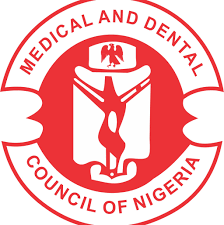Thirty-three-year old banker, Mr. Seyi Arogundade, had to be rushed to the company’s hospital by his colleagues after he collapsed at a meeting on Monday morning.
It did not start on that day. The Lagos-based banker had actually been feeling sick since January. In fact, the frequent headaches and joint pain he had been experiencing was a major reason why he could not take part in the Valentine festivities this month.
Though he had not been feeling well for the past seven weeks, he had yet to visit any hospital for treatment. Instead, he put himself on anti-malarial drugs and multi-vitamins recommended for him when he complained at a pharmacy in his residential area in Aguda.
Arogundade thought nothing of the fact that the symptoms did not subside; after all, many of his colleagues had the same complaints and also treated theirs the same way.
However, when he woke up from his fainting spell, doctors told Arogundade that he had been suffering from cerebral malaria infection and he had also been bitten by a resistant strain of the malaria parasite, which could kill within two weeks when not detected or treated aggressively.
It is common place to hear Nigerians say they have been treating malaria without relief for three to four weeks. Experts say that many Nigerians who share Arogundade’s belief in self medication when they are sick have increased cases of drug-resistant malaria.
Though Nigeria records the highest rates of malaria infections in Africa, doctors are worried that self medication may increase morbidity and mortality from the scourge.
A physician, Dr. M0ruf Abdulsalam, who spoke with our correspondent at the Lagos State University Teaching Hospital, Ikeja on Monday, said doctors have been observing an upsurge in cases of drug-resistant malaria and this could pose great challenges to the treatment of the disease.
Studies have also shown that more than 50 per cent of malaria cases that occur in the country are treated through self medication, by quacks and unqualified persons who lack the knowledge on appropriate diagnosis and treatment of the disease.
Many people have yet to see malaria infection as a disease that should be treated strictly by medical professionals in a hospital setting. Hence, self medication wins against better medical judgment.
Abdulsalam, however, noted that it would be dangerous to joke with fever symptoms by self medication now, as not all anti-malarials sold over-the-counter have the power to fight some resistant strains of the malaria parasite.
He said,“We are seeing more cases of drug-resistant malaria because Nigerians have abused anti- malarial drugs. We must note that not all fever is malaria. When you use anti-malaria drugs because you think you have malaria, you are abusing it and increasing the chances of those drugs not working for you. It is so bad in Nigeria that, when people see that their urine is yellow, they say they have malaria; when their mouth is dry or bitter, they have malaria.
“The danger of this act of self diagnosis and self medication is that when you actually have it, and the doctor prescribes anti-malarials for you, the drugs will not work. That is why many Nigerians have to take at least three anti-malaria drugs when they are sick because they have abused either one or two anti-malaria drugs before.”
Corroborating this view, Dr. Babajide Saheed identified the lack of regulation on the sale of anti-malarial drugs as another factor that has contributed significantly to the increasing cases of drug resistant malaria.
To check this syndrome, the physician called on the Federal Government to restrict over-the-counter sale of anti-malarial drugs.
Saheed said, “Nigerians use anti-malarials anyhow because they can go to any chemist or pharmacy without prescription and get it. Until government implements a policy to stop the sale of anti-malarial drugs over the counter, cases of drug-resistant malaria may increase. That you are feeling feverish or having headaches does not mean you have malaria.
“These are the symptoms you will see when you also have anemia or even leukemia (cancer of the blood). Also, there are different strains of malaria parasite which require different treatments. It is the abuse of these drugs that made the government to say no health professional should treat malaria until the result of the Malaria Rapid Test comes out positive. But how many Nigerians go to the hospital first when they have fever?
In regulating malaria treatment, Saheed called on government to also ban media advertisement of anti-malarials to encourage Nigerians to desist from self medication.
He added, “Malaria drugs are advertised indiscriminately in the Nigerian media. These adverts send the wrong signal to the public that you only need to take a particular of anti malarial for seven days or three days and you will feel better. It discourages people from going to the hospital to get the correct diagnosis when they are ill. Government must do this to help the fight against this disease.”
They, however, noted that more Nigerians may get malaria in the next few months because of the change in weather.
Abdulasamin noted that the rainy season, especially in Nigeria, aggravates factors that help mosquitoes to breed and infections to rise.
He said, “The specie of mosquito that causes malaria such as falciparum and vivax tend to thrive in water-logged areas or environments with inadequate hygiene facilities like many homes in Nigeria. Rain, however, worsens these unhygienic surroundings because many places are wet and mosquitoes keep breeding and infecting people.
“Also, mosquitoes live in dirty environments, and our waste disposal system in Nigeria is very poor. People dump refuse in drainages and on the streets, inviting mosquitoes to their homes and surroundings. So, we should expect an upsurge in malaria cases around this period of increased rainfall.”
ABUJA: Training Schedule for Basic Life Support BLS, Pediatric Advanced Life Support (PALS), Advanced Cardiovascular Life Support ACLS, First Aid, CPR, AED
PORTHARCOURT: Training Schedule for Basic Life Support BLS, Pediatric Advanced Life Support (PALS), Advanced Cardiovascular Life Support ACLS, First Aid, CPR, AED
LAGOS: Training Schedule for Basic Life Support BLS, Pediatric Advanced Life Support (PALS), Advanced Cardiovascular Life Support ACLS, First Aid, CPR, AED




